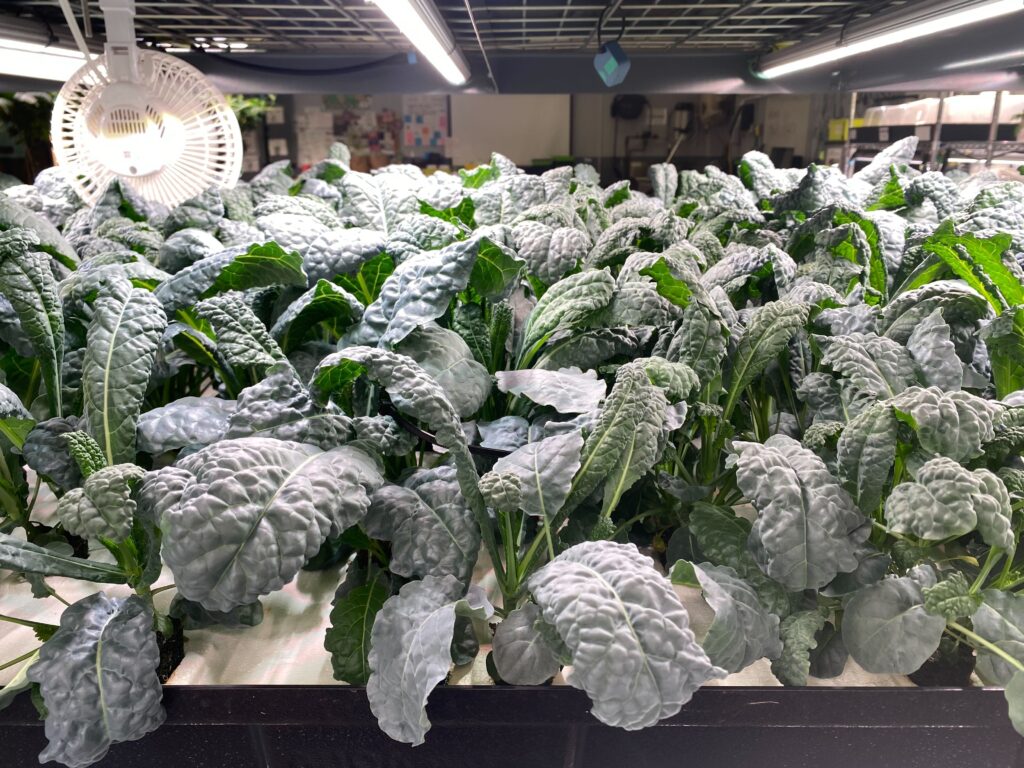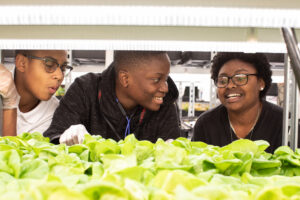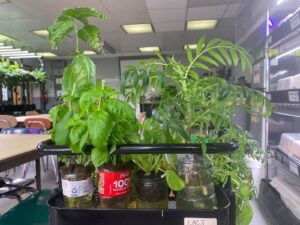By: Aliya Brown
In the pursuit for a healthier society, the role of access to healthy and nutritious food cannot be overstated. This is especially true for schools located in marginalized communities and food deserts. The role of healthy and nutritious food extends beyond physical health, influencing academic performance, and overall community well-being. Fostering access to healthy food and nutrition education is a crucial determinant of health that cannot be ignored.
Students who have regular access to nutritious food show improved academic performance, attendance, and behavior. Proper nourishment lays the foundation for a successful educational journey. Several studies have highlighted the connection between nutrition and academic success. Students with regular access to healthy meals exhibit improved cognitive function, better attendance, and enhanced classroom behavior. These findings underscore the integral role that proper nutrition plays in shaping the educational journey of our youth.
Incorporating healthy and nutritious meals into school environments is a powerful strategy to address overall academic performance, and also health concerns like obesity, diabetes and cardiovascular diseases. Recent data from the Centers for Disease Control and Prevention (CDC) paints a concerning picture of childhood obesity in the United States. As of the latest statistics, approximately 19% of children and adolescents aged 2-19 are classified as obese.1
However, for communities located in food deserts where access to fresh, healthy food is severely limited, poor health outcomes and rates of diet-related diseases are often exacerbated. The USDA defines food deserts as areas where people have limited access to a variety of healthy and affordable food, typically due to a lack of grocery stores within a convenient distance.
Millions of individuals, including a substantial number of children, live in areas designated as food deserts, perpetuating a cycle of inadequate nutrition and health disparities. The absence of fresh and wholesome food options contributes significantly to the prevailing health challenges. This scarcity perpetuates a cycle of poor nutrition and can contribute to health disparities in already marginalized communities.
Citywide initiatives that aim to provide healthy foods in schools helps to situate our work into a much wider context. For example, earlier this year, New York City Mayor Eric Adams, the Department of Education (DOE), and the Mayor’s Office of Food Policy (MOFP) unveiled “Prioritizing Food Education in Our Public Schools: A Path to Developing a Healthy Next Generation.” The plan documents a comprehensive roadmap to improving food education in New York City’s public school system, and is already ensuring students across the city learn healthy eating habits, and how each component of our food system interacts with the climate, economy, and local community. Promisingly, the Chancellor’s Proposed Five-Year Capital Plan commits $150 Million for the New York City Public Schools’ Cafeteria Enhancement Experience.
The call to action is clear: prioritizing healthy and nutritious food in schools and addressing food deserts is paramount for building a healthier and more equitable society. By investing in the well-being of our youth and communities, we not only combat immediate health risks but also sow the seeds for a future where everyone has the opportunity to thrive. By spreading awareness of hunger and food insecurity, and through food justice advocacy and collaborative efforts, we can build a foundation for lasting change, ensuring that no child or community is excluded in the journey towards better health.
1 https://www.cdc.gov/obesity/data/childhood.html
Aliya Brown is the Senior Communications & Content Manager at Teens For Food Justice.






